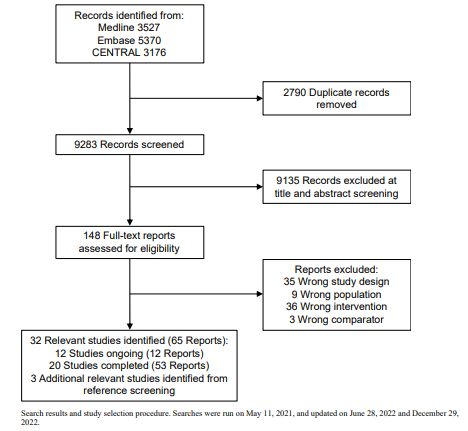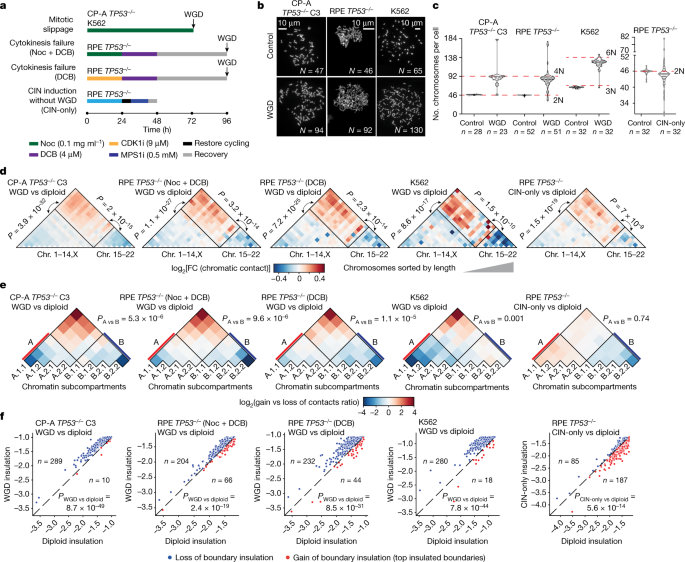2023-03-08 インペリアル・カレッジ・ロンドン(ICL)
彼らは、複数のアレルギー食品を早期に導入することが、「どんな食物アレルギー」を予防できる証拠があることを発見しましたが、家族は若い乳児に複数のアレルギー食品を早期に導入することが困難だと感じていました。この研究は、卵やピーナッツを乳児の食事に早期に導入することで、これらの食品へのアレルギー発症リスクを減らすことができることを示す以前の研究結果に加えて、幼児期に複数の一般的なアレルギー食品を乳児の食事に導入するための受け入れ可能な方法を見つけるためにさらなる研究が必要であることを示唆しています。
<関連情報>
- https://www.imperial.ac.uk/news/243872/earlier-introduction-allergenic-foods-children-prevent/
- https://jamanetwork.com/journals/jamapediatrics/fullarticle/2802512
アレルゲン食品の導入時期と免疫グロブリンE介在性食物アレルギーのリスクについて Timing of Allergenic Food Introduction and Risk of Immunoglobulin E–Mediated Food Allergy
Roberta Scarpone, Parisut Kimkool, Despo Ierodiakonou, Jo Leonardi-Bee, Vanessa Garcia-Larsen, Michael R. Perkin, Robert J. Boyle
JAMA Published:March 27, 2023.
DOI:10.1001/jamapediatrics.2023.0142

Key Points
Question Is the timing of introduction of allergenic foods to infants associated with their risk of developing immunoglobulin E–mediated food allergy?
Findings This systematic review and meta-analysis of 23 randomized clinical trials with 13 794 participants found moderate-certainty evidence that introducing multiple allergenic foods from 2 to 12 months of age was associated with reduced risk of any food allergy but increased risk of withdrawal from the intervention. There was high-certainty evidence that earlier introduction of egg or peanut was associated with reduced risk of egg or peanut allergy, respectively.
Meaning In this study, earlier introduction of multiple allergenic foods was associated with a reduced risk of food allergy but with significant rates of withdrawal from the intervention.
Abstract
Importance Earlier egg and peanut introduction probably reduces risk of egg and peanut allergy, respectively, but it is uncertain whether food allergy as a whole can be prevented using earlier allergenic food introduction.
Objective To investigate associations between timing of allergenic food introduction to the infant diet and risk of food allergy.
Data Sources In this systematic review and meta-analysis, Medline, Embase, and CENTRAL databases were searched for articles from database inception to December 29, 2022. Search terms included infant, randomized controlled trial, and terms for common allergenic foods and allergic outcomes.
Study Selection Randomized clinical trials evaluating age at allergenic food introduction (milk, egg, fish, shellfish, tree nuts, wheat, peanuts, and soya) during infancy and immunoglobulin E (IgE)–mediated food allergy from 1 to 5 years of age were included. Screening was conducted independently by multiple authors.
Data Extraction and Synthesis The Preferred Reporting Items for Systematic Reviews and Meta-analyses guideline was used. Data were extracted in duplicate and synthesized using a random-effects model. The Grading of Recommendations, Assessment, Development, and Evaluation framework was used to assess certainty of evidence.
Main Outcomes and Measures Primary outcomes were risk of IgE-mediated allergy to any food from 1 to 5 years of age and withdrawal from the intervention. Secondary outcomes included allergy to specific foods.
Results Of 9283 titles screened, data were extracted from 23 eligible trials (56 articles, 13 794 randomized participants). There was moderate-certainty evidence from 4 trials (3295 participants) that introduction of multiple allergenic foods from 2 to 12 months of age (median age, 3-4 months) was associated with reduced risk of food allergy (risk ratio [RR], 0.49; 95% CI, 0.33-0.74; I2 = 49%). Absolute risk difference for a population with 5% incidence of food allergy was -26 cases (95% CI, -34 to -13 cases) per 1000 population. There was moderate-certainty evidence from 5 trials (4703 participants) that introduction of multiple allergenic foods from 2 to 12 months of age was associated with increased withdrawal from the intervention (RR, 2.29; 95% CI, 1.45-3.63; I2 = 89%). Absolute risk difference for a population with 20% withdrawal from the intervention was 258 cases (95% CI, 90-526 cases) per 1000 population. There was high-certainty evidence from 9 trials (4811 participants) that introduction of egg from 3 to 6 months of age was associated with reduced risk of egg allergy (RR, 0.60; 95% CI, 0.46-0.77; I2 = 0%) and high-certainty evidence from 4 trials (3796 participants) that introduction of peanut from 3 to 10 months of age was associated with reduced risk of peanut allergy (RR, 0.31; 95% CI, 0.19-0.51; I2 = 21%). Evidence for timing of introduction of cow’s milk and risk of cow’s milk allergy was very low certainty.
Conclusions and Relevance In this systematic review and meta-analysis, earlier introduction of multiple allergenic foods in the first year of life was associated with lower risk of developing food allergy but a high rate of withdrawal from the intervention. Further work is needed to develop allergenic food interventions that are safe and acceptable for infants and their families.


